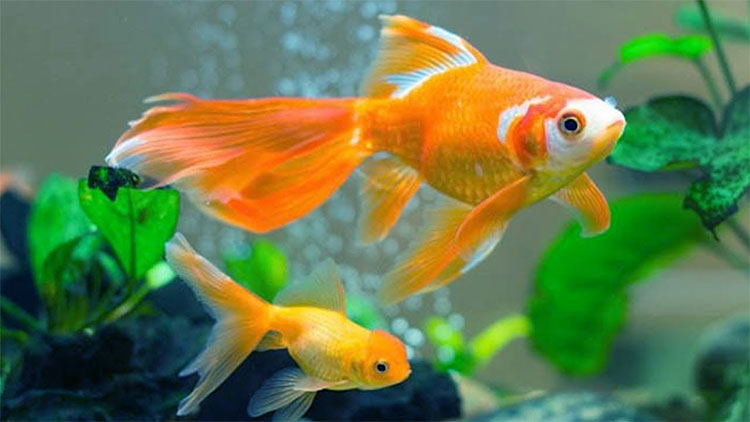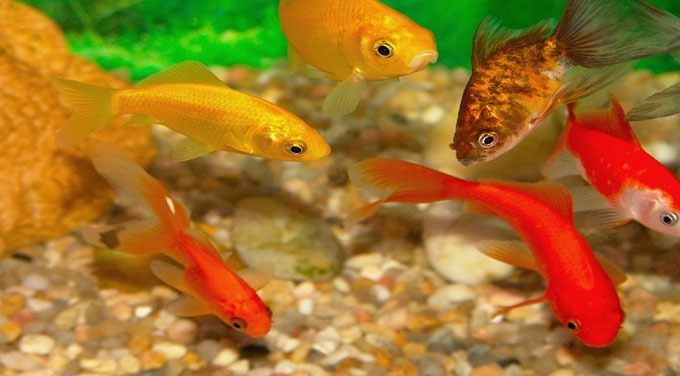Goldfish are small creatures, but can they store a large amount of memories in their brains?
Pretty goldfish aren’t necessarily the most beloved pets in the family. We sometimes slam our twigs into their funny glass tanks without caring whether they are upset or not; we also often forget to clean their house (when this happens, the goldfish are dragged out of the tank by rough hands and dropped directly into the sink filled with water); and when they unfortunately pass away, we don’t have any official ceremony, we just throw them down the toilet. Bad, completely wrong to treat goldfish like that. Many people say that goldfish have a very bad memory, when their memory can only be stored for about… 3 seconds.
One of the most common excuses for indifference is that goldfish don’t remember much about harassment. Many people say that goldfish have a very bad memory, when their memory can only be stored for about… 3 seconds. But is it true?
According to the Animals page, no one has a definitive answer. To prove it, take a look at a study that was done to show that fish memory in general is not as bad as it is said. The first experiment was conducted at the Israel Technion Institute of Technology, where scientists spent a month “training” the fish to react to an underwater bell that signals food. After 5 months of being put back to sea to develop, they were called back by the same signal. This not only showed that fish can develop conditioned reflexes, but also that their memories can last for several months.
But it’s fish in general, what about goldfish? Researchers at the University of Plymouth want to know how many goldfish are able to learn and remember. The first result: goldfish can be taught to push a feed lever (great for an organism that we always think it can’t do much about!). But that’s not all: During the three-month study, scientists adjusted the lever to work only one hour per day. Instead of constantly pushing the lever and not having food, scientists found that goldfish adapted and pushed the lever much less frequently during times without food. And they even gather around the lever when the food time approaches, indicating that they remember the hour to come.
 Another study, conducted by researchers at the University of Belfast in Queens, found that goldfish would avoid touching the walls of the tank if they had been electrocuted within the previous 24 hours, suggesting that they remember the most likely location.
Another study, conducted by researchers at the University of Belfast in Queens, found that goldfish would avoid touching the walls of the tank if they had been electrocuted within the previous 24 hours, suggesting that they remember the most likely location.
“Goldfish have great memories and they are also very intelligent,” says Culum Brown, an expert in fish perception. This confusion of knowledge can come from the fact that the breeder drops the fish in the tank and lets them swim in a boring way, without much interaction.
Experts said goldfish are considered a typical and popular example when studying intelligence and species of fish. For example, if goldfish are fed on one side of the tank, they will learn quickly and quickly remember where and when they were fed. Goldfish absorb information through signals, colors, and even the music the farmer gives.
Above all, if this fish learns to get out of the net, it will be remembered for a long time and will know how to solve problems. Goldfish can also recognize and remember their peers after long periods of separation.
 “It is difficult to determine the exact period of goldfish memory because it depends on the repetition of the action, as well as which action affects them the most,” Brown said.
“It is difficult to determine the exact period of goldfish memory because it depends on the repetition of the action, as well as which action affects them the most,” Brown said.
Well-groomed goldfish can live up to 20 years. Therefore, farmers should choose aquariums that are not too small, have enough space to live in, and often communicate through colored or sound signals.


